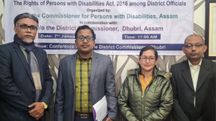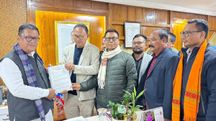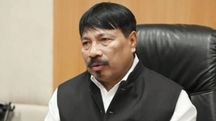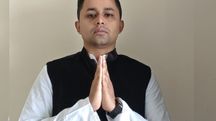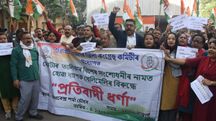Assam Accord: Supreme Court Constitution Bench to schedule hearing challenging against Sec 6A of Citizenship Act on Nov 1
The ‘Assam Movement’ led by the All Assam Students’ Union (AASU) and All Assam Gana Sangram Parishad (AAGSP) sought identification, disenfranchisement and expulsion of illegal immigrants from Assam.
 Supreme Court of India
Supreme Court of IndiaThe Supreme Court posted the hearing of the pleas challenging the constitutional validity of Section 6A of the Citizenship Act inserted by way of an amendment in 1985 in furtherance of the Assam Accord.
The Constitutional Bench comprising of Justices D.Y. Chandrachud, M.R. Shah, Krishna Murari, Hima Kohli and P.S. Narasimha were apprised by Senior Advocate, Ms. Indira Jaising who set out directions for scheduling the hearing dates on November 1.
The Constitutional Bench was asked, among other things, whether the vested interest would be harmed by the matter's hearing being delayed.
According to Solicitor General, Mr. Tushar Mehta, the Bench may need to go into the more significant citizenship-related problems mentioned in the reference order, in order to evaluate the effect of delay as a preliminary issue.
Following the Bangladesh Liberation War, which ultimately resulted in Bangladesh's independence from Pakistan, India experienced a huge influx of migrants then after. Before Bangladesh gained its independence, when West Pakistan started to engage in hostilities, the migration from East Pakistan had already begun. After the conflict was over, Bangladesh and India signed a treaty for friendship, cooperation, and peace on March 19, 1972, promising not to wage war against one another and not to use their respective territories to harm one another's military capabilities or endanger their security.
In Assam there was an abrupt increase in the number of registered voters in the list for assembly elections, from 6.5 million in 1972 to 8.7 million in 1979, which led to an anti-immigration movement - the ‘Assam Movement’. The movement led by the All Assam Students’ Union (AASU) and All Assam Gana Sangram Parishad (AAGSP) sought identification, disenfranchisement and expulsion of illegal immigrants from Assam.
In this context, the AASU, Government of India, and Government of Assam came to a tripartite agreement, and on August 15, 1985, the Assam Accord was signed. The deadline for detecting foreigners was established as January 1, 1996. People who had immigrated to Assam before the specified date were therefore had to be regularised. The terms of the Foreigners Act, 1946 and the Foreigners (Tribunals) Order, 1964 were to be followed in order to identify everyone who entered Assam after January 1, 1966 (inclusive) and up until March 24, 1971. All rights, excluding the 10-year ability to vote, would be in place. In order to reinforce these deadlines for awarding citizenship in Assam, Section 6A of the Citizenship Act was included.
In 2012, the Guwahati-based civil society group Assam Sanmilita Mahasangha challenged Section 6A. So far as it sets separate cut-off dates for regularising illegal immigrants who entered Assam and the rest of India, it was asserted that Section 6A is discriminatory, arbitrary, and illegal. Instead of updating the National Register of Citizens (NCR) by taking into consideration the electoral rolls previous to March 24, 1971, it requested the Court's indulgence in ordering the relevant body to update the NCR based on the facts included in the NRC created in 1951.
Later, more Assamese organisations submitted petitions contesting the legality of Section 6A. The Constitution Bench was eventually assembled on April 19, 2017, and was made up of Justices Madan B. Lokur, R.K. Agarawal, Prafulla Chandra Pant, D.Y. Chandrachud, and Ashok Bhushan. The Constitution Bench was initially formed on April 19, 2014, when the case was heard by the Apex Court. It was led by Justice Rohinton Nariman, and it was a two-judge Bench. Since all of the judges have since retired, with the exception of Justice D.Y. Chandrachud, CJI Lalit has now assembled the current Constitution Bench.
Copyright©2026 Living Media India Limited. For reprint rights: Syndications Today
